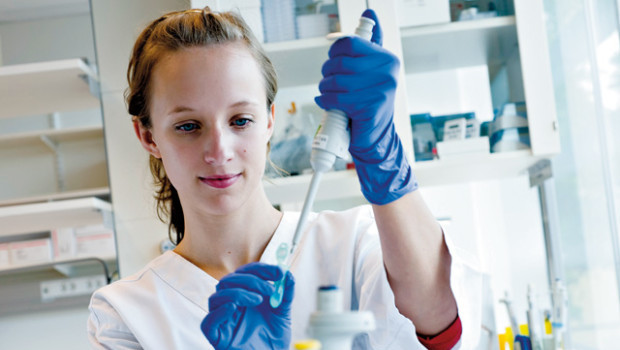The Research Council of Norway is awarding funding to six new projects under the new Centre for Digital Life Norway, which will bring the total number of projects associated with the centre to 12.
“Digitalisation is transforming research in the life sciences. The link between biotechnology and digitalisation also opens the door to new opportunities for industrial developments in Norway, which could be of great benefit for the restructuring of Norwegian trade and industry,” states Anne Kjersti Fahlvik, Executive Director of the Division for Innovation.
The link between biotechnology and digitalisation opens the door to new opportunities for industrial developments in Norway, says Anne Kjersti Fahlvik.“However, the relevant stakeholders need to find new ways to work together if we are to succeed. The Research Council is helping to expand the collaborative framework by facilitating large-scale, interdisciplinary cooperation between biotechnology and disciplines such as mathematics, ICT and engineering science. Our role is to be a locomotive in enabling technology-driven research that leads to industrial development and value creation,” Ms Fahlvik adds.
In autumn 2015 the Research Council provided funding for the establishment of the Centre for Digital Life Norway, a virtual national centre, and six interdisciplinary research projects. The current allocation doubles the number of projects affiliated with the centre.
Professor Trygve Brautaset at the Norwegian University of Science and Technology (NTNU) is director of the Centre for Digital Life Norway. He is very pleased that a Tromsø-based project has been granted funding.
“Tromsø has been a key driver in the process of establishing the Centre for Digital Life Norway and this project makes the centre even more of a nationwide effort,” he says.
The project from UiT The Arctic University of Norway seeks to find new antibiotics that are less prone to triggering resistance based on bioprospecting and marine antimicrobial molecules.
Dr Brautaset points out that the projects awarded funding combine a high degree of interdisciplinarity with a very clear potential for innovation. The range of projects reflects biotechnology’s many different application areas; one addresses the decomposition and use of timber, one focuses on tissue culture and one is looking at new production methods for Omega 3.
Professor Trygve Brautaset is director of the Centre for Digital Life Norway.(Photo: NTNU)The fourth project has its origin in the Research Council’s first Idélab sandpit workshop, Towards a zero-emissions society, in 2014. In this project, researchers will be using microorganisms to develop a more energy-efficient process for producing concrete.
The social context in which biotechnological research and innovation are taking place is an important component of the initiative. Roughly NOK 10 million of the overall NOK 110 million has been allocated to a project to involve more actors in research and innovation processes. The project, to be headed by Heidrun Åm of NTNU, will use the centre’s research activities as its point of departure.
“We hope that strengthening the societal aspects in this way will promote wider cooperation on innovation based on the opportunities inherent in the technology,” Anne Kjersti Fahlvik concludes.
Projects awarded funding:
Systems analysis and fundamental control of bacterial processes in the production of bio-concrete for construction purposes – University of Oslo
Emulating life in 3D with digital and experimental tissue models – Norwegian University of Science and Technology (NTNU)
OXYMOD – Optimized oxidative enzyme systems for efficient conversion of lignocellulose to valuable products – Norwegian University of Life Sciences
Digital discovery of antimicrobial molecules from marine Arctic resources with reduced risk of triggering resistance – UiT The Arctic University of Norway
Microbial production of Omega 3 fatty acids – a model-based approach – NTNU
Responsibility, practice and the public good across Digital Life – NTNU







